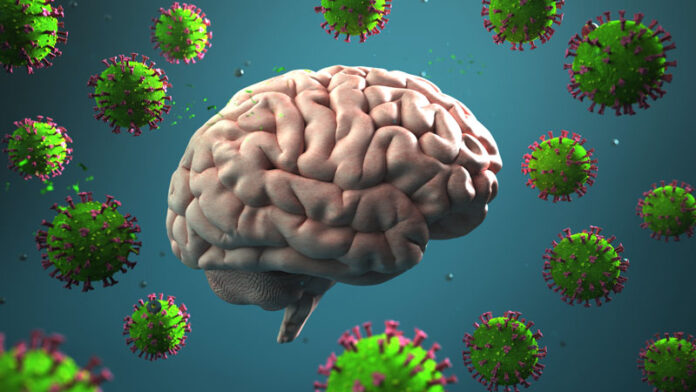[ad_1]
Editor’s note: Find the latest COVID-19 news and guidance in Medscape’s Coronavirus Resource Center.
The coronavirus may remain in people’s brains after infection and trigger relapses in patients who thought they had recovered, according to a new study published in the journal Viruses.
In the study, mice that were infected with the virus through their nasal passages developed severe illnesses due to brain infections, even after the virus left their lungs. In humans, this could explain why patients who appear to be over COVID-19 sometimes relapse and die.
“The brain is one of the regions where virus likes to hide,” Mukesh Kumar, the lead study author and a researcher at Georgia State University, said in a statement.
“That’s why we’re seeing severe disease and all these multiple symptoms like heart disease, stroke and all these long-haulers with loss of smell, loss of taste,” he said. “All of this has to do with the brain rather than with the lungs.”
The research team found that the virus was located in the brains of mice at a level that was 1,000 times higher than in any other part of the body. Viral loads in the lungs began to drop after three days but remained high in the brain on the fifth and sixth days after infection, which is when the disease became more severe.
“Once it infects the brain, it can affect anything because the brain is controlling your lungs, the heart, everything,” he said. “The brain is a very sensitive organ. It’s the central processor for everything.”
COVID-19 survivors whose infections reached their brain could also become susceptible to other serious medical conditions in the future, such as Parkinson’s disease, multiple sclerosis, cognitive decline and autoimmune diseases, he added.
“It’s scary,” he said. “A lot of people think they got COVID and they recovered and now they’re out of the woods. Now I feel like that’s never going to be true. You may never be out of the woods.”
Sources
Viruses, “Neuroinvasion and Encephalitis Following Intranasal Inoculation of SARS-CoV-2 in K18-hACE2 Mice.”
Georgia State University, “Study Finds COVID-19 Attack On Brain, Not Lungs, Triggers Severe Disease In Mice.”
[ad_2]
Source link












